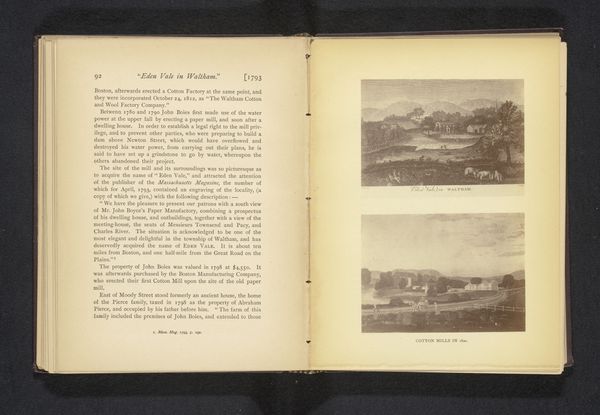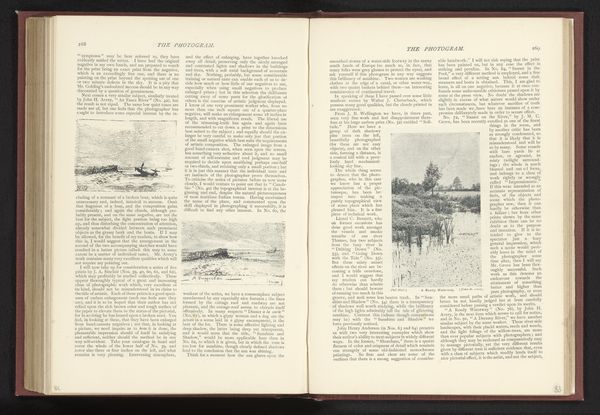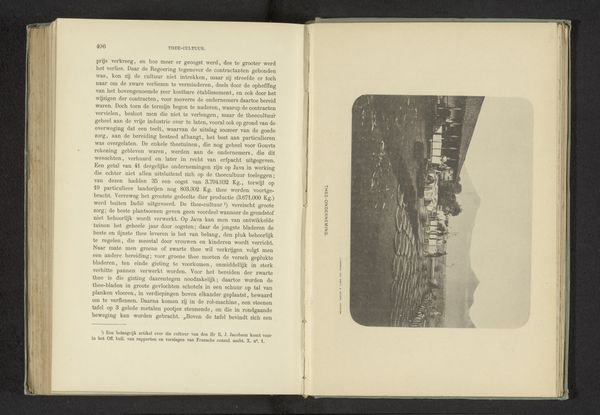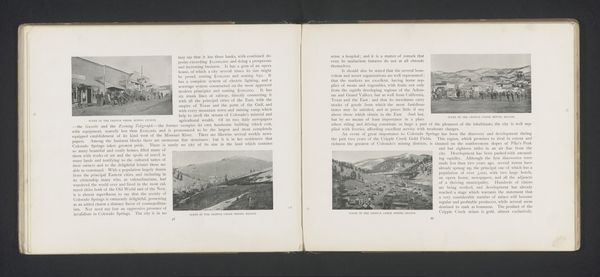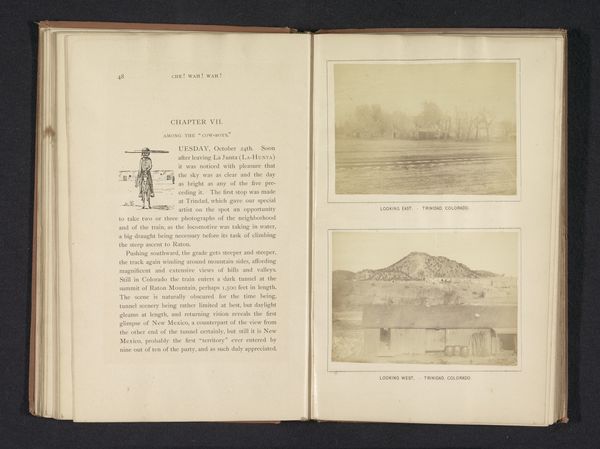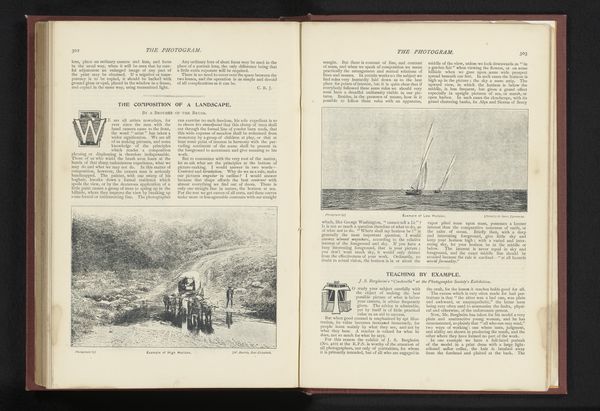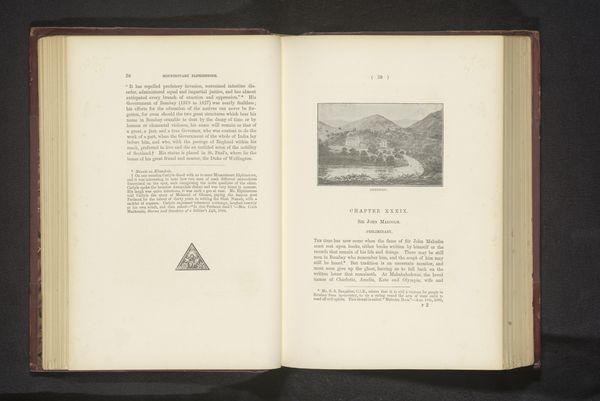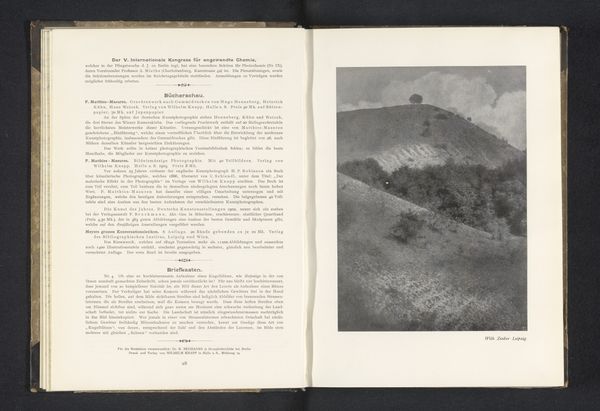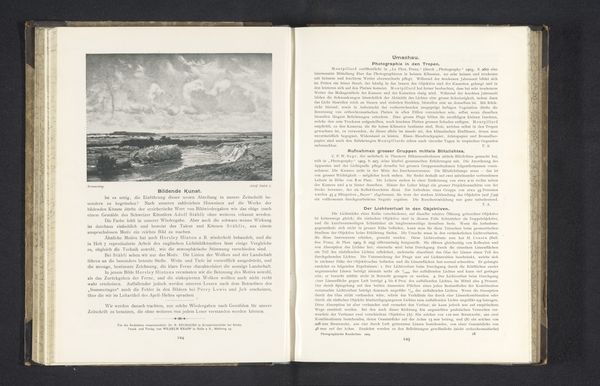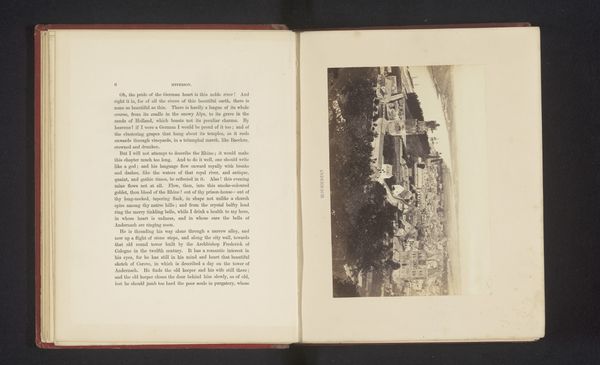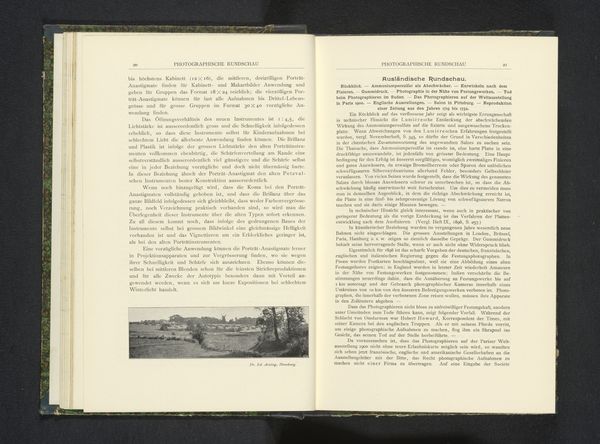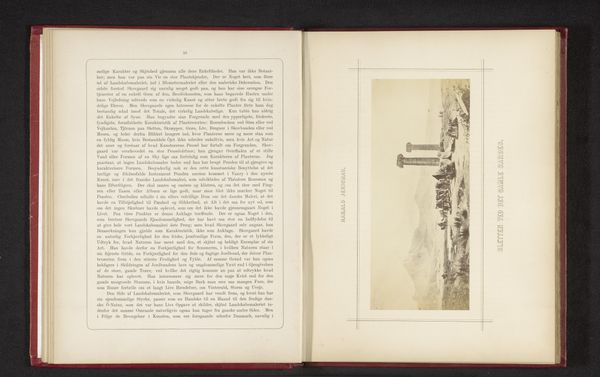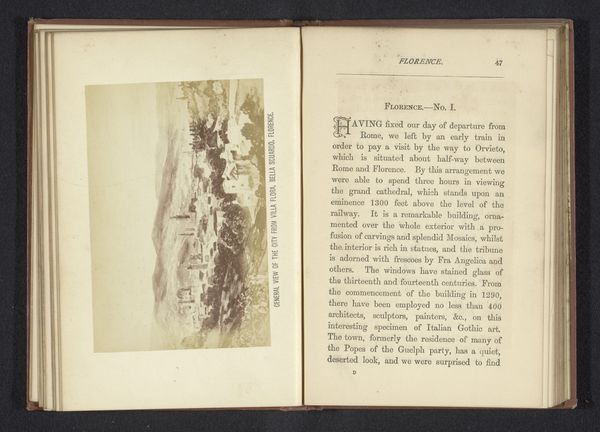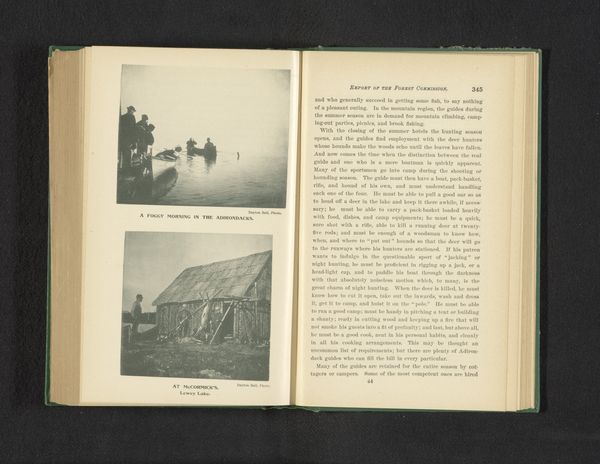
drawing, print, etching, photography, gelatin-silver-print
#
editorial cover design
#
editorial design
#
photography for publication design
#
drawing
#
aged paper
#
still-life-photography
#
pictorialism
# print
#
etching
#
editorial typography
#
landscape
#
photography
#
magazine mockup
#
publication layout
#
gelatin-silver-print
#
publication mockup
#
book layout design
#
publication design
Dimensions: height 81 mm, width 131 mm
Copyright: Rijks Museum: Open Domain
Curator: Let's delve into this image titled "Landschap" by Arthur J. Golding, created before 1894. Editor: Right! It's a landscape image reproduced within a book. It has a hazy, dreamlike quality, likely a gelatin silver print. I’m intrigued by its integration into the publication, but I am curious about how this image was actually constructed... What can you tell me about that? Curator: Notice how the photographic image isn't just presented, but re-presented within the printed page. This act of reproduction – the transition from gelatin silver print to ink on paper – fundamentally alters the viewer’s experience and invites us to question the production of both the photograph itself, and its reproduction for wider distribution. Who was the intended audience for this publication and how would they engage with such a view of nature? Editor: So, thinking about its dissemination… It makes me think about how easily it could be spread. Curator: Exactly! We have to ask ourselves, what kind of labour went into this book's production and circulation? Also, does the context change our relationship to it? Consider how photography at that time was becoming increasingly accessible, both in terms of image creation and distribution, which impacted how ideas spread within different socio-economic groups. What might this imply about this publication? Editor: Perhaps the aim was to elevate photography to the status of more established art forms by packaging it within a traditionally “high-art” medium. The very act of framing it within text changes its perceived value... Curator: Precisely! It pushes us to consider not just the aesthetic qualities, but also the mechanisms that shaped its cultural meaning. Editor: Thanks! I hadn’t considered it in this light; thinking about its production and reproduction completely reshapes my understanding of it!
Comments
No comments
Be the first to comment and join the conversation on the ultimate creative platform.
